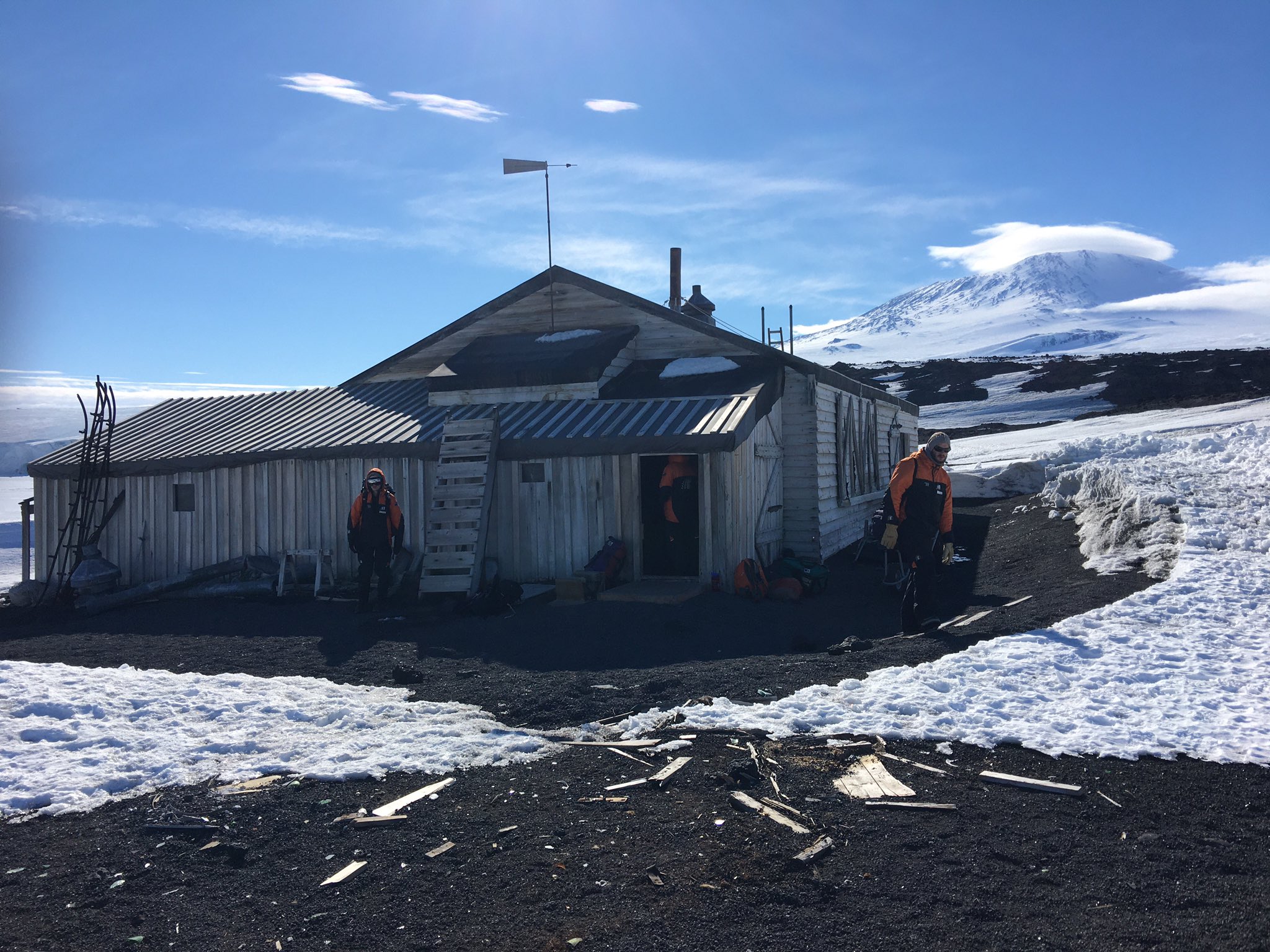The Postgraduate Certificate in Antarctic Studies (PCAS) is an internationally unique programme jointly developed by the University of Canterbury and Antarctica New Zealand. PCAS is a 14-week, in‐depth, multi‐disciplinary programme of study that critically examines contemporary scientific, environmental, social and political debates focused on Antarctica and the Southern Ocean.
Every year, PCAS attracts graduate students from a diverse range of disciplines and draws on the expertise of over thirty academic staff and guest speakers.
As part of the course, students travel to Antarctica for a unique 8-10 day field trip to gather data for reports and projects. In 2019, the field course was led by Antarctic marine scientist Dr Michelle LaRue. Via Twitter, Michelle shares what it’s like teaching PCAS.
We arrive at Scott Base & immediately get field-trained: basic first aid, how to stay warm, and how to use camping stoves, shown here
— Dr. Michelle LaRue (@drmichellelarue) January 9, 2020
2/n pic.twitter.com/D3Tm8XjYdH
We set up tents and build ice walls and learn how to use survival gear
— Dr. Michelle LaRue (@drmichellelarue) January 9, 2020
3/n pic.twitter.com/gsMjPAEHKY
Then after we are all trained we sign out of base and head out to camp in a Hagglund, which is a Swedish military vehicle that can be partly submerged and apparently can also float for up to 4 hrs so yes quite useful on sea ice
— Dr. Michelle LaRue (@drmichellelarue) January 9, 2020
4/n pic.twitter.com/6BoeYGOtrE
Then we set up camp: Scott polar tents to sleep in, a Weather Haven to eat in, Endura tent for our gear, and a trusty Hagglund at the ready.
— Dr. Michelle LaRue (@drmichellelarue) January 9, 2020
5/n pic.twitter.com/ust3xXRo0T
We visit Cape Evans, one of Robert Falcon Scott’s huts during the heroic age of exploration, complete with a serendipitous lecture from the Antarctic Heritage Trust
— Dr. Michelle LaRue (@drmichellelarue) January 9, 2020
6/n pic.twitter.com/v8evNqtLtP

We measure sea ice thickness (120 cm!) and visit the Weddell seal colony at Turtle Rock
— Dr. Michelle LaRue (@drmichellelarue) January 9, 2020
7/n pic.twitter.com/WnAoQoFsaZ
We eat dinner inside after LONG days and have impromptu lectures outside
— Dr. Michelle LaRue (@drmichellelarue) January 9, 2020
8/n pic.twitter.com/U2438QgQNR

We test out phase-sensitive RADAR equipment, set up weather stations, and learn about knot-tying
— Dr. Michelle LaRue (@drmichellelarue) January 9, 2020
9/n pic.twitter.com/t9SkmUmOEJ
We gather snow samples to test for microplastics and eDNA and play in ice caves
— Dr. Michelle LaRue (@drmichellelarue) January 9, 2020
10/n pic.twitter.com/YnGEhwGyzd
We celebrate Antarctica Day and test out ground penetrating RADAR equipment
— Dr. Michelle LaRue (@drmichellelarue) January 9, 2020
11/n pic.twitter.com/WDqSMXrsnJ

We dig snow pits to learn about ice crystal structure, temperature and density
— Dr. Michelle LaRue (@drmichellelarue) January 9, 2020
12/n pic.twitter.com/37Y2JPRQ7U
We set up a weather RADAR and then take it down and then… we take down camp and then the cleaning and reorganizing begins
— Dr. Michelle LaRue (@drmichellelarue) January 9, 2020
13/n pic.twitter.com/Ocs5jRlvCF

BUT THATS NOT ALL
— Dr. Michelle LaRue (@drmichellelarue) January 9, 2020
We then visit McMurdo Station, w a tour of ground-breaking research going on in Crary Lab, the waste-water treatment plant, and a tour of the Arrival Heights atmospheric research lab
15/n pic.twitter.com/C0KiPRWOQY
We do environmental monitoring projects and help with the baking in the kitchen which by the way is way more fun than I imagined, having access to a proper chefs kitchen with an industrial mixer is my jam, it turns out
— Dr. Michelle LaRue (@drmichellelarue) January 9, 2020
16/n pic.twitter.com/5ajX8tSZ58
In essence, we work hard, we learn a TON, and we play hard. #PCAS IS A HOOT. According to this educator anyway.
— Dr. Michelle LaRue (@drmichellelarue) January 9, 2020
17/17 pic.twitter.com/uQqtXrf44j

—
Dr Michelle LaRue is a Lecturer of Antarctic Marine Science in Te Kura Aronukurangi (School of Earth & Environment) at the University of Canterbury. Her focus is on interdisciplinary tools, such as GIS and high-resolution satellite imagery, to study spatial and population dynamics of penguins, seals, & cougars. Michelle is also a science communicator, who believes that making science accessible by being approachable is key to public engagement and science comprehension.













